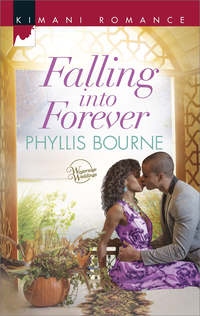
Полная версия
Heated Moments
“Afternoon, ma’am,” he said, when he finally reached her car.
She removed her sunglasses. The officer blinked and then gawked at her, openmouthed. Lola was used to it. In a moment his face would register one of the looks she regularly got from strangers, recognition or, in the case of men, instant adoration.
She smiled, and his face flushed red. Yep, she thought, adoration.
“Officer.” Lola looked at the name tag pinned to the shirt of the baggy uniform. “Officer Wilson.”
The sound of his name appeared to snap him out of his stupor. “Um...ma’am, do you realize how fast you were going?” His voice cracked, and he cleared his throat. “The posted speed limit on this road is forty-five miles an hour. I clocked you doing ninety-four.”
Talking her way out of a ticket would be a chip shot, Lola thought. Feign ignorance, smile a lot and hit him with the facial expressions the camera loved.
Easy peasy.
You’re in the wrong. Take the ticket and be on your way.
Lola sighed. Maybe it was time for her to finally allow that inner voice to take the wheel.
“Sorry, Officer,” she said simply. No explanations. No excuses.
Her goal was to get to New York City as quickly and uneventfully as she could. Sitting here trying to sweet-talk her way out of a ticket would only delay her further, or even worse, get her into trouble she had gone out of her way to avoid.
The blush rose from Officer Wilson’s neck to his thin face. “I’ll need to see your driver’s license and car registration.” He fumbled with the pad in his hand, but this time he managed to hold on to it.
Leaning over, Lola opened the glove box and retrieved a small plastic folder containing both her car registration and proof of insurance. She handed it to Officer Wilson, then winced as it slipped from his grasp.
While he looked over her registration, Lola hefted her designer tote from the floorboard of the passenger’s side to the seat. Her arm muscles strained from the effort. Geez, she thought, if the thing got any heavier she’d have to put wheels on it and roll it around like a piece of luggage.
“Your registration is in order.” Officer Wilson returned the plastic folder. “Driver’s license, please.”
“Just a sec.” Lola stuck her hand inside the black hole of the oversize pink bag in search of her wallet. She rifled through the contents, unearthing a camera, next a flashlight and then a packet of protein powder.
One of these days she was going to have to clear out this bag, she thought, her arm elbow-deep in the mouth of the purse. She pulled out a small bottle of hand sanitizer and a pocket pack of tissues.
“Do you need help, ma’am?” The officer leaned down and peered through the open driver’s side window.
“No, I got—” Pain sliced through her hand, and Lola yanked it from the bag. “Ow! Ow! Ow!”
Blood oozed from her palm and dripped down her arm. Damn scissors, she thought, looking at the wound. She should have pulled them from her bag weeks ago.
Lola glanced up at the officer, holding her bloody hand in her other one. “I know I have a first-aid kit somewhere in my purse. Maybe you could empty it and...”
The cop stepped back from the Mustang on wobbly legs, and the color drained from his face.
“Blood,” he whispered, staring at her hand.
“It’s just a little cut,” Lola said, though it hurt like hell. She positioned her arm to give him a better look. “See, it’s not a big...”
His eyes rolled back in his head, and the poor guy looked as if he was about to drop on the spot.
“Officer Wilson,” Lola yelled, throwing open the car door.
She reached out to steady him with her good hand, but was a second too late. He crumpled to the ground. Lola heard a horrifying thunk as the back of his head hit the gravel, cushioned only by weeds poking through.
“Shit! Shit! Shit!” Lola hissed.
Her cut forgotten, she knelt beside him.
“Officer Wilson?”
No response. She lifted his head to her knee and noted from the rise and fall of his chest that the cop was still breathing. Thank God, she thought, sending up a silent prayer. He didn’t appear to be bleeding, but with her hand still dripping blood she couldn’t be sure.
Grabbing the two-way radio from his belt, she pressed several of the buttons.
“Officer down,” Lola yelled into it, imitating the lingo she’d heard on TV cop shows. But unlike television there was no reassuring voice saying the cavalry was coming to the rescue, only the hiss of dead air.
Closing her eyes briefly, she shoved aside the panic threatening to consume her.
“I’m just going to my car for my phone to call for help,” Lola told the unconscious officer.
She rested the cop’s head on the ground as gently as she could, and then dived inside her car. After snatching her cell phone off the passenger seat with trembling fingers, she hurriedly called 911.
Lola clutched the phone to her ear. Silence. She glanced at the screen. The words No Service had replaced the dots indicating signal strength.
The panic she’d banished was creeping up on her now. Looking down the barren road, she saw the tractor still inching through a field in the distance. It was too far away. She ran to the police car, hoping its radio would be more effective than the one the officer carried. Her efforts were rewarded with static and then more silence.
Returning to the unconscious cop’s side, Lola exhaled a shaky breath. She had no idea if she should move him, but what choice did she have? She couldn’t leave him here to go for help.
She was going to have to take him to help.
Lola rounded her car to the passenger’s side and flung open the door. Back at the officer’s side, she sucked in a deep breath before crouching on her haunches. She lifted his head and then his shoulders as gently as possible, finally managing to weave her arms under his.
The cop, who she would have described as scrawny when he’d stepped out of the patrol car earlier, was a lot heavier than he looked.
“Come on, Officer Wilson,” she pleaded. “Help me out here.”
Slowly, Lola dragged him across the hot pavement toward the passenger’s side of her car. Rivulets of sweat rolled down her back as the sun beat on it, and for once she was grateful for years of torturous Pilates classes that had not only kept her lean, but made her strong.
Still, she was gasping for breath by the time she managed to get Officer Wilson slumped in the passenger’s seat.
Back in the driver’s seat, Lola snatched a wad of tissue from the pocket pack to stem the blood still oozing from her hand. She used her free hand to start a GPS search for the closest hospital.
“Hold on, Officer Wilson,” she said, as the route to a facility a few miles away appeared. “I’ll have you at Cooper’s Place Community Hospital in a flash.”
Chapter 4
A scowl and the smell of chocolate greeted Dylan as he stepped through the back door of his mother’s house.
“When are you going to learn to knock before you barge into someone’s home?” Virginia Cooper placed her hands on the floral apron covering her hips.
“Knock? I grew up in this house.”
Standing at the stove, his mother jabbed a finger in his direction. “But the bills in the mailbox out front are in my name. I pay the cost to be the boss.”
“Well, I definitely don’t want to step on the boss’s toes, especially when she’s baking,” Dylan conceded with a chuckle. The heavenly aroma coming from the oven appealed to his sweet tooth, prodding him to get off her bad side. “So, what’s in the oven?”
A corner of his mother’s mouth quirked upward in a hint of a smile, indicating he was out of the doghouse, at least for now. He doubted she’d still be smiling once she found out the reason behind his visit.
“White-chocolate-chip muffins.” Virginia picked up a mechanical timer on the kitchen counter and turned the dial to set it. “They’ll be ready in sixteen minutes. You staying?”
“I am now.”
“Coffee?” she offered.
“Have a seat.” Dylan gestured toward the high-back stools surrounding the large kitchen island, which was cleared except for his mother’s closed laptop computer. When college football season started next month its smooth granite top would be loaded with a wide assortment of breakfast breads and his mother’s homemade preserves. “You’re providing homemade muffins. The least I can do is make coffee.”
Virginia sat in one of the chairs while he opened the door to the cabinet where the coffee was kept.
“What’s with the uniform? Thought you were finally taking a day off work.”
Dylan dumped a scoop of coffee into a paper filter and placed it in the coffeemaker’s brew basket. He added water and switched the machine on. While the coffee brewed, he rinsed the chocolate-muffin batter from the mixing bowl in the sink and placed it in the dishwasher.
“Technically, I am off, but I had a day-in-the-life career speech at the elementary school earlier. It’s the students’ last day of summer school.” He glanced at his watch. “Right now I’m supposed to be at city hall. Uncle Roy called a department head meeting about the next mayoral inauguration, but it’s been delayed. He’s stuck in the waiting room at Doc Hadley’s office, and the doc’s running behind schedule.”
“Inauguration? He hasn’t even been reelected yet.”
Dylan dried his hands with a paper towel. His late father’s youngest brother had been mayor of the town named for their ancestors ever since Dylan could remember. “His reelection is pretty much a foregone conclusion. He wants to take the oath of office outdoors this time, in the town square, and wants it spruced up for the event.”
“The town’s budget is stretched enough. We can’t afford the hours of overtime it would take for the public works department to work on the square.” Virginia’s snort filled the kitchen. “Besides, Roy’s getting too damn old, not to mention crotchety, to hold office. He needs to hang it up. This town needs some fresh blood in the mayor’s office.”
Folding his arms, Dylan leaned against the kitchen counter. His snort was identical to his mother’s. “There is no fresh blood. If nobody files to run in the next three weeks, he’ll be running unopposed.”
“Again,” they both said, simultaneously.
His mother’s eyes lit up. “You could run.”
“No way.” Dylan wagged a finger. “I’m not cut out to be a politician.”
A gurgling sound emitted from the coffeemaker indicated the end of the brewing cycle. Dylan crossed the room and retrieved two mugs from another cabinet.
He caught his mother’s frown out of the corner of his eye. “Anyway, if you were mayor that would leave that bumbling Wilson boy as our new police chief, and that would really leave this town with something on our hands.”
“Stop it, Mom,” Dylan admonished. “He’s young and a bit high-strung, but he tries hard and the job means everything to him.”
Dylan sat the mugs on the kitchen island, filled them with coffee and then went to the refrigerator for the creamer.
“Humph. He gave me a twenty-dollar ticket for jaywalking on Main Street,” Virginia said. “And I’m not the only one. I was with his great-grandmother, and he gave her one, too.”
Dylan added a generous dollop of cream to his mother’s mug and slid it toward her, leaving his black. Wilson was still a rookie and a stickler for every law on the books. His judgment on what he should probably turn a blind eye to—especially in a small town—would improve once he got more experience under his belt.
Meanwhile, Dylan supported his lone officer. “Were you two jaywalking?” he asked, standing across from her at the table.
“Yeah, but...”
He shrugged and eyed her over the rim of his mug. “Do the crime, pay the fine.”
His mother harrumphed. “You’d think with practically everyone who runs this town having the last name of Cooper, I’d be able to get a ticket fixed,” she grumbled, and then took a sip of coffee. “But your uncle Roy decided in Mayor’s Court that we had to pay up. He even threatened us with a contempt-of-court charge when we voiced our displeasure with his decision, for, as he put it, ‘mouthing off’.”
The aroma of chocolate now thoroughly permeated the kitchen, pushing aside thoughts of his uncle. Dylan’s stomach rumbled, reminding him he’d had only coffee and toast for breakfast, and his gaze wandered to the mechanical timer.
As if on cue, it dinged.
Virginia rose from her chair, walked over to the stove and switched off the timer. Donning oven mitts, she pulled the pan of muffins from the stove and placed it on a wire rack. She yanked off the mitts and returned to her coffee. “They need to cool for about five minutes.”
“Nonsense.” Dylan grabbed a dessert plate from the cabinet. He reached to pluck a muffin from the hot tin. Muffling a curse, he snatched his hand back and shook it.
“Greedy.” Virginia laughed from her perch at the kitchen island.
Undeterred, he tried again, this time managing to get one onto his plate and barely singeing his hand. “Starving,” he corrected.
Back at the table, Dylan took a huge bite out of the muffin and slowly chewed. The pleasant flavors of sugar, butter and cream that had won the woman seated across from him blue ribbons for baking at a decade of county fairs were notably absent. His taste buds revolted at the cruel trick his nose had played on them. He took a gulp of cooled coffee from his mug to put them out of their misery and wash the tasteless lump down.
He looked at his mother, who quickly averted her eyes. “What exactly was that?”
“A muffin, dear. I just made a few substitutions.”
Standing at the coffeemaker, Dylan topped off his mug. “Like what? Swap out taste for dust?”
Virginia opened the lid of the laptop at her elbow. Pulling her reading glasses from her apron pocket, she peered through them at the screen. “I’m experimenting with some recipes to give my guests some healthier options next month,” she said. “So I tweaked my regular muffin recipe a bit and cut the amount of sugar in half. I also substituted all-purpose flour with whole wheat flour, used applesauce instead of oil and mashed avocado instead of butter,” she said.
Every autumn, the home Dylan had grown up in turned into a bed-and-breakfast and hosted fans and alumni of the college football team from a neighboring town. The four-room B and B was also the closest thing Cooper’s Place had to a hotel.
“You might have warned me,” he said.
His mother sighed as she typed with two fingers on the laptop. “I was going to take them to my garden club meeting and get their opinion, then you showed up,” she said. “I thought I’d get your visceral reaction.”
Dylan picked up his plate and slid the offending muffin in the trash can. “That visceral enough for you?”
“Maybe if I tried a mashed banana instead of the avocado,” his mother said more to herself than to him, still staring at the screen.
“Just warn me next time,” Dylan said.
Virginia looked up from the recipe, eyeing him over the rim of her glasses. “Speaking of which, what are you really doing here?”
Dylan exhaled. Crossing his arms, he leaned against the kitchen counter. “I was doing my morning patrol...”
“This is supposed to be your day off.”
Dylan had still kept to his routine of doing an early-morning patrol around town before his officer came on duty. “Anyway, Rosemary Moody ran out of her hardware store and flagged down my truck,” he continued.
“Hmmm.” His mother pretended to be absorbed in the laptop, the telltale twitch of her left eye giving her away.
“She wanted to tell me your order had just come in, and she wanted to know when was a good time to deliver it.”
Virginia shook her head. “That’s what I get for doing business with the town blabbermouth,” she grumbled. “I should have just driven to Columbus and picked up what I needed from Home Depot.”
“Everybody blabs everyone else’s business around here,” Dylan said. It was a fact of small-town life he hadn’t missed during his years in Chicago. “So, mind telling me what you intend to do with a truckload of concrete stones and concrete mix?”
He waited for an answer to his question, but her lips remained stubbornly pressed together.
“I’m going to find out eventually, so you might as well spill it.”
She swiveled in her chair and faced him. “I want to put a fire pit out back. When the weather turns cool, the guests can sit out there and roast marshmallows, make s’mores.”
“Sounds like a good idea,” he said. “So I wonder why Luke didn’t know anything about your plans when I asked him what was up?”
Dylan had his suspicions on why the bed-and-breakfast’s part-time handyman was clueless, but wanted to hear the answer from his mother. He shifted his weight against the counter. Several moments passed. “You’re not having that pit built, are you?”
She slowly shook her head.
“You were planning to try to do it yourself.” Dylan chuckled. The sound was as dry as the muffin, which still left a bad taste in his mouth.
“Just hear me out, son.” Virginia raised a hand. Without waiting on a response, she launched into a spiel about some television show on the Home Design channel called Granny’s Old House, where a senior citizen tackles home improvement, design and landscaping projects.
Dylan listened as his mother babbled on, but only because he was waiting for her to stop long enough to take a breath. Then he could ask her if she was out of her flipping mind.
She tapped on the laptop’s keyboard with her index fingers and then turned the screen toward him. “Granny says it’ll only take a couple of hours.” Virginia inclined her head toward the small screen. “See for yourself.”
He glanced at the laptop. Sure enough, a woman with a hard hat covering her gray hair was on the business end of a shovel, talking about how easy it was to build your own fire pit.
“It’s not any more difficult than arranging a few flowers in a vase,” Granny said breathlessly as she hefted one of the large concrete blocks.
Granny was full of it, Dylan thought.
“We’re both in our seventies,” his mother said. “If she can do it, I can, too.”
“More like seventy-nine and a half for you,” he muttered.
Конец ознакомительного фрагмента.
Текст предоставлен ООО «ЛитРес».
Прочитайте эту книгу целиком, купив полную легальную версию на ЛитРес.
Безопасно оплатить книгу можно банковской картой Visa, MasterCard, Maestro, со счета мобильного телефона, с платежного терминала, в салоне МТС или Связной, через PayPal, WebMoney, Яндекс.Деньги, QIWI Кошелек, бонусными картами или другим удобным Вам способом.





